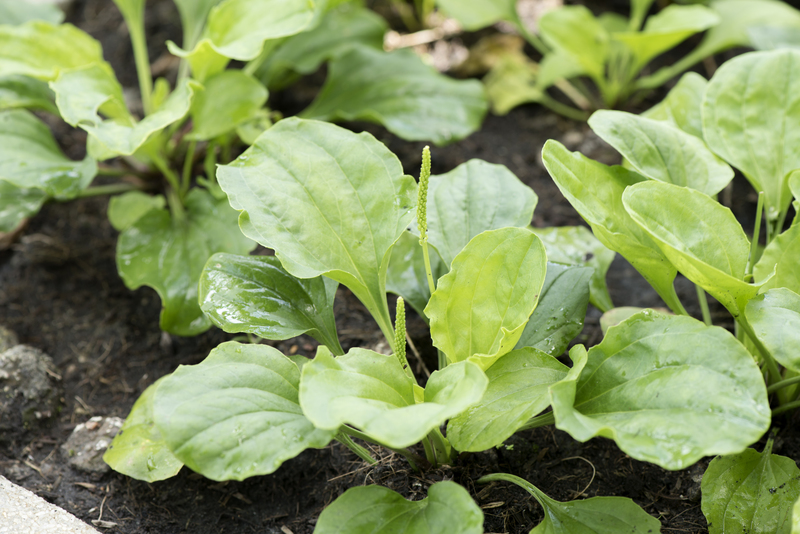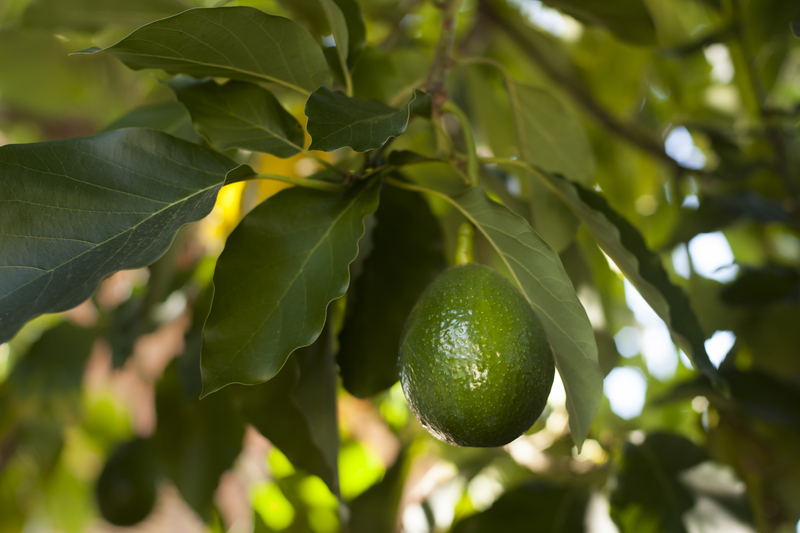Elevate Your Cooking with Homegrown Herbs
Posted on 01/06/2025
Elevate Your Cooking with Homegrown Herbs: Unlock Fresh Flavor in Your Kitchen
Are you looking to enhance your culinary creations? Homegrown herbs offer an unmatched flavor, aroma, and vibrancy, taking your dishes from ordinary to extraordinary. Beyond taste, growing your own herbs adds a sense of accomplishment and ensures you always have the freshest ingredients at your fingertips. In this comprehensive guide, we'll explore how you can elevate your cooking with homegrown herbs and transform your meals into unforgettable experiences.
Why Choose Homegrown Herbs for Cooking?
- Unmatched Freshness: Nothing compares to the taste of herbs freshly snipped from your garden.
- Full Control: When you grow your own herbs, you avoid harmful pesticides and ensure organic, healthy produce.
- Cost-Effective: A small investment in seeds or starter plants leads to a continual bounty all season long.
- Aromatic Kitchen: Enjoy delightful fragrances while cooking and even as you brush past your indoor or outdoor herb plants.
Freshly picked herbs don't lose delicate oils and volatile compounds that impart unique flavors to food. By using herbs from your own garden, spices and seasonings become more than just ingredients--they become highlights of your culinary artistry.

The Best Herbs to Grow at Home
If you're new to herb gardening, start with these popular and easy-to-grow varieties. Each brings distinct qualities that can make elevating your home cooking simple and delicious.
Basil
- Perfect for: Salads, pasta, pesto, sauces, and pizza.
- How it elevates dishes: Its aromatic, sweet, and peppery flavor is key to countless classic recipes.
Parsley
- Perfect for: Finishing soups, salads, and Mediterranean dishes.
- How it elevates dishes: Adds freshness and acts as a palate cleanser, brightening any plate.
Cilantro (Coriander)
- Perfect for: Salsas, tacos, curries, and Asian cuisine.
- How it elevates dishes: Provides intense flavor and a zesty, citrus-like aroma.
Thyme
- Perfect for: Roasted meats, stews, and Mediterranean foods.
- How it elevates dishes: Offers subtle earthiness, complementing a wide array of savory recipes.
Mint
- Perfect for: Teas, desserts, fruit salads, and Middle Eastern dishes.
- How it elevates dishes: Delivers a refreshing, cooling flavor that balances sweetness and spice.
Rosemary
- Perfect for: Grilled meats, potatoes, and bread.
- How it elevates dishes: Intense pine-like aroma infuses dishes with robust herbal notes.
Sage
- Perfect for: Stuffings, poultry, and autumnal recipes.
- How it elevates dishes: Lends a warming, slightly peppery flavor ideal for rich or fatty foods.
*Tip: Most homegrown herbs flourish in small pots, making them suitable for balconies, window sills, or even compact apartments.
How to Grow Culinary Herbs at Home
Growing your own herbs is easier than you might think. Whether you have a large garden, a balcony, or just a sunny windowsill, you can cultivate a thriving home herb garden to upgrade your cooking adventures.
Choose the Right Location
- Sunlight: Most herbs, such as basil, rosemary, and thyme, thrive with 6-8 hours of direct sunlight.
- Indoors: Place herb pots near a bright window--south or west-facing is best.
- Outdoors: Pick a spot with drainage and room to grow or use raised beds and containers.
Use Quality Soil and Fertilizer
- Herbs prefer well-drained soil. Use a high-quality potting mix if planting in containers.
- Mix in compost or organic fertilizer for healthy, lush growth.
Water Wisely
- Keep the soil consistently moist but not soggy. Over-watering can cause root rot.
- Let the soil dry out slightly between waterings, especially with Mediterranean herbs (rosemary, thyme, oregano).
Harvesting for Maximum Flavor
- Harvest in the morning after dew dries--this is when essential oils are most concentrated.
- Pinch or snip just above a pair of leaves to encourage bushy growth.
- Never cut more than one-third of the plant at once.
Creative Ways to Use Your Homegrown Herbs in Cooking
Your favorite home-cooked meals become even more delicious with generous handfuls of garden-fresh herbs. Here are innovative ways to make your meals shine:
1. Herb-Infused Oils and Butters
- How to use: Chop rosemary, thyme, or basil and infuse in high-quality olive oil or softened butter.
- Benefits: These flavorful condiments are perfect for drizzling on breads, vegetables, or meats.
2. Brighten Up Dressings and Marinades
- Homemade vinaigrettes come alive with freshly chopped parsley, chives, or tarragon.
- Mint and cilantro boost the citrus notes in lime and lemon marinades.
3. Finishing Touches for Maximum Impact
- Pro tip: Add delicate herbs (basil, chive, dill) at the end of cooking or as a garnish to preserve their flavors and visual appeal.
- Sprinkle chopped parsley or cilantro on soups, stews, salads, and grains for color and freshness.
4. Homemade Pesto and Chimichurri
- Puree fresh basil (for pesto) or parsley/cilantro (for chimichurri) with olive oil, nuts, garlic, and cheese or vinegar.
- Use as a pasta sauce, sandwich spread, or grilling marinade.
5. Herbal Teas and Infusions
- Steep mint, lemon balm, or chamomile leaves for a refreshing homemade herbal tea.
- Use chilled herbal infusions as bases for cocktails or mocktails.
Preserving Homegrown Herbs for Year-Round Enjoyment
Enjoy the taste of your herb garden even in the off-season by using these simple yet effective preservation techniques:
Drying
- Best for: Woody herbs like thyme, oregano, and rosemary.
- Hang in small bunches in a cool, dry, well-ventilated space.
- Once dried, crumble and store in airtight containers away from light.
Freezing
- Chop and freeze soft herbs such as basil, parsley, and chives in ice cube trays with olive oil or water.
- Pop the cubes into soups, stews, and sauces when cooking.
Herb Vinegars and Salts
- Infuse vinegar (white wine, apple cider, or rice) with sprigs of your favorite herbs for custom-flavored dressings.
- Blend dried herbs with kosher salt to create unique seasoning blends for grilling or finishing dishes.
Tips for the Perfect Herb Pairings in Cooking
Each herb has a unique flavor profile that complements various dishes. Here's how you can enhance your meals with homegrown herbs:
- Basil: Works perfectly with tomatoes, mozzarella, eggplant, poultry, and pasta.
- Rosemary: Ideal with roasted lamb, poultry, potatoes, and rustic breads.
- Thyme: Adds depth to roasted meats, root veggies, mushrooms, and soups.
- Sage: Excellent with pork, sausage, beans, and autumn squashes.
- Cilantro: Boosts the flavors of Mexican, Indian, and Asian cuisines.
- Mint: Balances sweet desserts, cooling beverages, lamb, and salads.
Experiment with combinations and let your creativity guide you. Fresh homegrown herbs bring out the best in traditional recipes and are the secret ingredient behind memorable meals.
The Health Benefits of Using Homegrown Culinary Herbs
- Rich in Nutrients: Herbs such as parsley, basil, and cilantro are packed with vitamins A, C, and K.
- Antioxidant Properties: Many herbs have compounds that fight oxidative stress and inflammation.
- Digestive Aid: Mint, rosemary, and dill can soothe digestion and reduce bloating.
- Flavor without Salt: Intensify taste in your dishes without relying on excess sodium.
Making dishes with your own garden-fresh herbs transforms both flavor and well-being, giving every meal a healthy "homegrown" twist.

Tips for Beginners: Starting Your Home Herb Garden
- Start Small: Choose 2-3 herbs you use frequently.
- Label Your Pots: Helps you remember what you planted, especially as seedlings appear similar.
- Regular Harvest: Frequent pinching encourages bushier growth.
- Stay Organic: Use organic soil, fertilizer, and natural pest controls to ensure safe, chemical-free harvests.
- Join a Community: Share seeds, tips, and recipes with fellow herb enthusiasts online or in local gardening groups.
Conclusion: Bring Your Cooking to Life with Fresh Herbs
Elevate your cooking with homegrown herbs and turn every meal into a celebration of flavor. Whether you're a novice or seasoned chef, cultivating your own herb garden guarantees freshness, quality, and culinary freedom. The joy of plucking basil for a Caprese salad or snipping rosemary for roasted potatoes adds a special touch of love to your kitchen creations. Start small, experiment with new pairings, and soon you'll wonder how you ever cooked without the green magic of freshly harvested herbs.
Embrace the endless possibilities--your palate and your guests will thank you.
Latest Posts
Botanical Elegance: Classic Hedge Trimming Shapes and Techniques
Embarking on a Garden Makeover Adventure
Building a Wind-Defensive Garden Retreat

